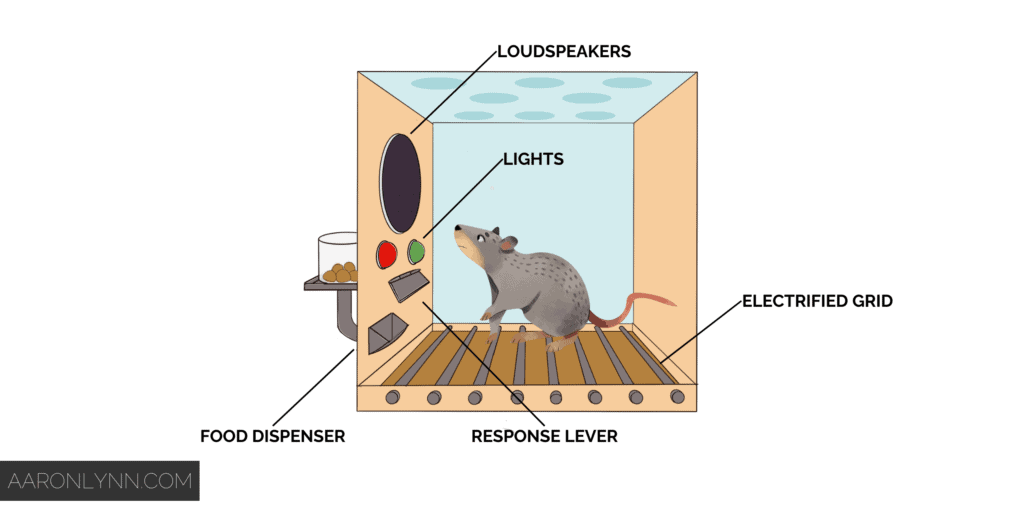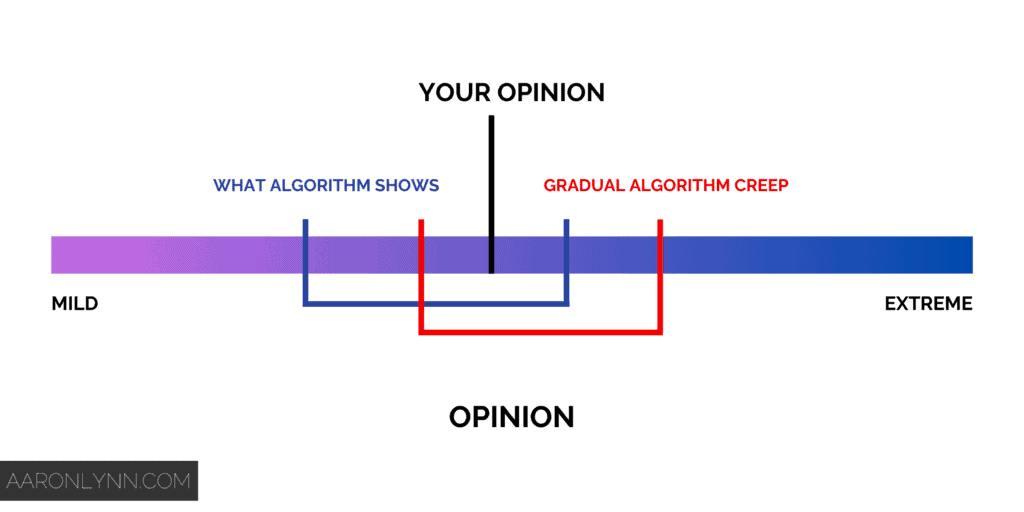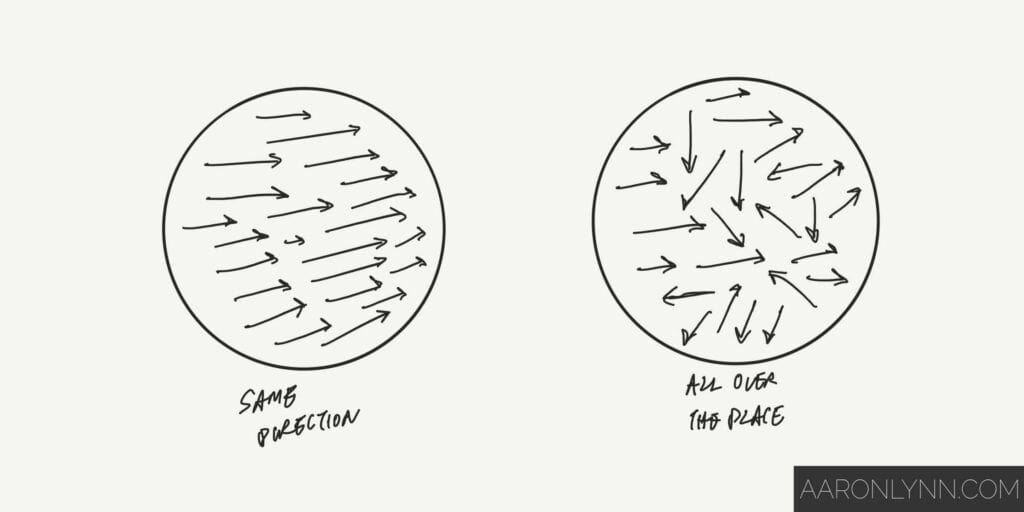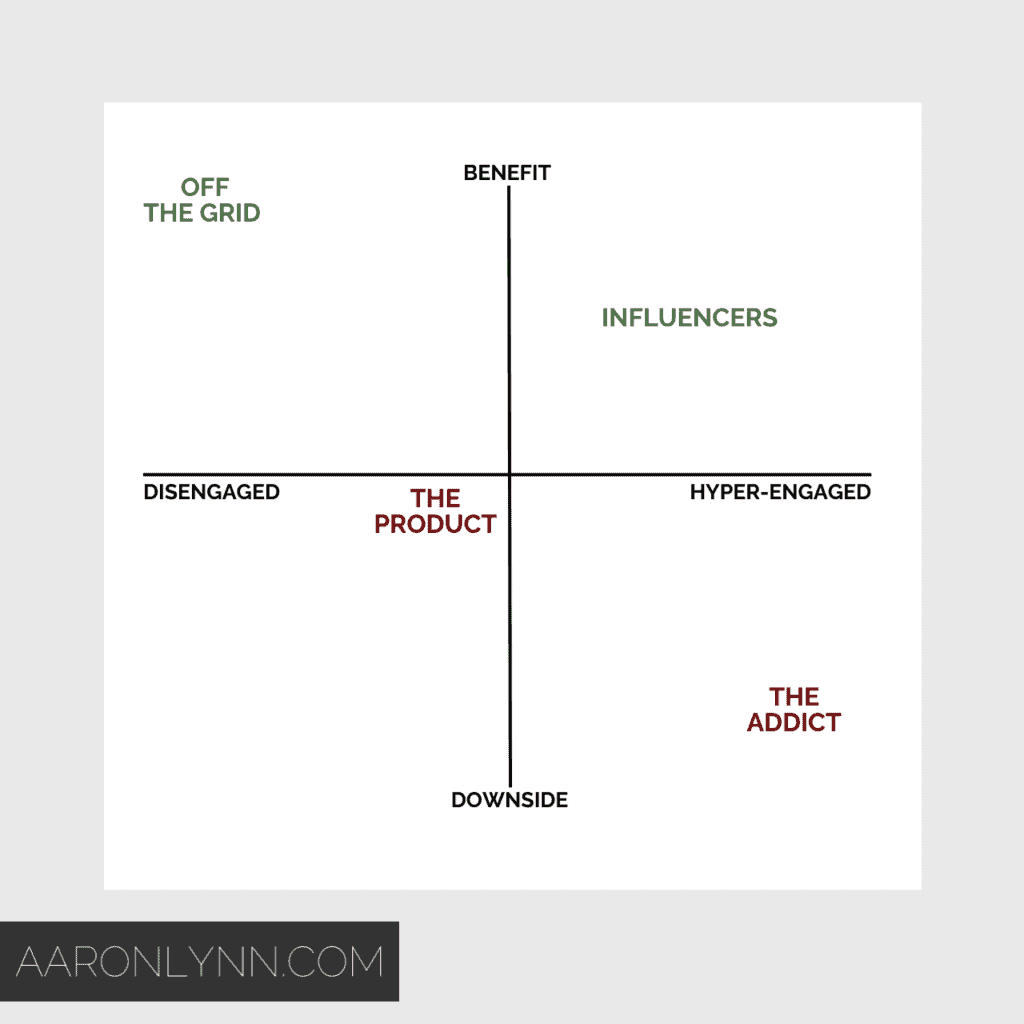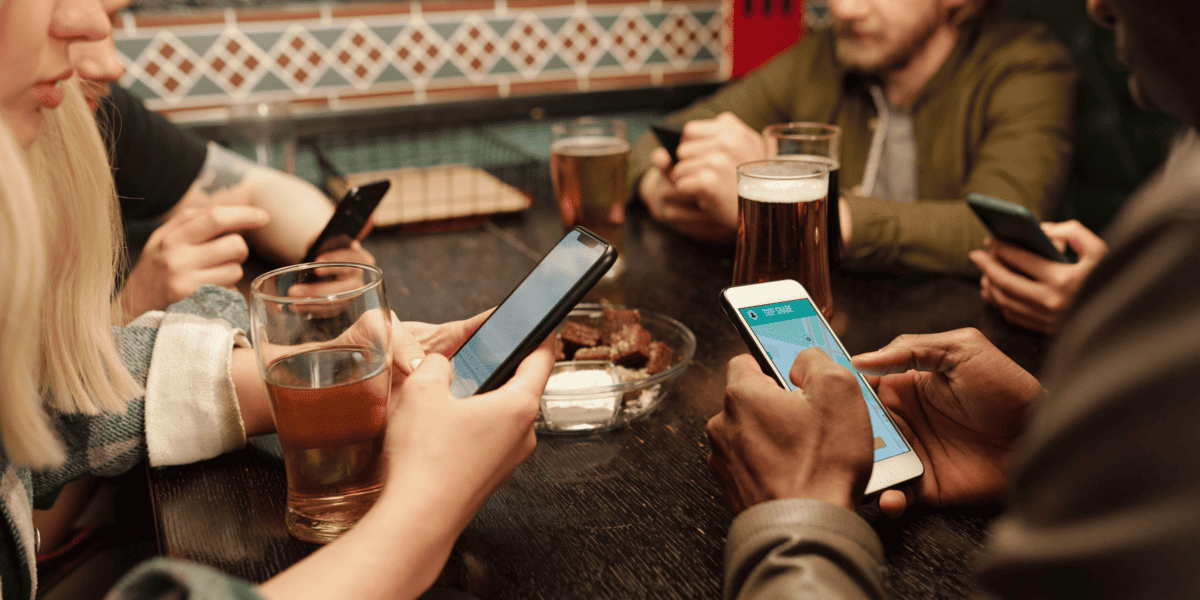
Social Media is an astonishing feat of technology.
It’s a digital layer on top of our lives, turning us into cyborgs of sorts and creating a part of our lives that exists only in data.
Used correctly, it can bring a lot of good into our lives.
But social media is really a grand bridge that leads us into cyberspace, and one that is impossible to engineer with guardrails.
While we have tried, there will always be insufficient safety mechanisms in place to protect the vulnerable — be that the elderly, children, or even us adults.
Many people approach social media without critical thought.
Many people set their life goals based on what they see on social media.1Hat tip: Aki Yamaguchi.
Others are simply overwhelmed by the sheer2Also, insane. amount of content that is produced daily, and are unable to process it or discern truth from fiction from harm.3We produce 328.77 million terabytes per day. https://www.statista.com/statistics/871513/worldwide-data-created/
This bridge interacts with human physiology and psychology, which are platforms that haven’t evolved in the past 10,000 years.
It is little wonder that we end up with strange and sometimes negative results.
Whether it’s filter bubbles, the glorification effect, or the attention economy, these all have implications for society, professionals and business owners.
Social media has both its good and bad.
I believe that we need to create our own approaches to usage, where we can turn it into more of a boon than a tragedy.
And that’s because social media is really just a massive technological force multiplier — it makes us more of what we already are. It amplifies our best, and worst, characteristics and behaviours.
The main question that you should ask yourself is:
Do I opt out of social media, or do I learn to play the game?
And if you choose to play:
Am I playing social media, or is it playing me?
Social Media is a Skinner Box
A Skinner box is an experiment created to observe and manipulate animal behaviour.
It is a physical box, and inside it, an animal activates a lever or responds to a given stimulus in exchange for a reward.
This reward is normally the removal of a noxious stimulus, or food.
The crazier variations of skinner boxes have involved experiments with rats and cocaine — press lever, get cocaine.
This is where a reward feels good, but is horribly bad for you.
The intention of Skinner boxes is to see how animals respond to operant conditioning, and draw conclusions about how learning and conditioning work.
These conclusions are then taken and applied commercially to industries like gaming, be it online games, slot machines or gamification.
Which brings us to social media.
Social media is humanity’s Skinner Box, except that there is no structured intention or experiment — just a lot of random conditioning and reinforcement.
In turn, this leads to unintended learned behaviours.
Here’s how social media works as a Skinner Box.
Our “lever” takes the form of posting, sharing, remixing, or otherwise putting our attention on social media.
The “reward” is likes, shares, DMs, followers and more of the content that we enjoy. These release dopamine into our brain and generate good feelings.
But the problem is that social media algorithms are complex.
We don’t really know what action will result in a “reward” or, conversely, in silence.
So we know that sometimes we are rewarded for using social media.
And when we are rewarded, it feels good.
But sometimes, we do the exact same thing and there is simply silence, which our brains can interpret as punishment.
Or worse, sometimes there is hateful feedback or cyberbullying.
Our brain does some calculations and determines that the positives generally outweigh the negatives and silences, and so, like the rats with the cocaine-lever, we keep hitting it in hope of a reward.
Sometimes, we receive that reward.
Sometimes, we receive nothing.
Sometimes, we get a 10,000-volt shock.
Because that’s what we are now wired for.
The deeper reality is that we, and the engineers at social media companies, simply do not know how the algorithm really works. There are infinite variables that factor into whether our actions result in a reward, punishment or simply nothing.
This random schedule of reward and reinforcement is eerily similar to what narcissists do to control people around them.
We know from studies that this creates a host of strange behaviours and mental health issues, none of which are good.
Now if we take that and multiply it by everyone active on social media… we’re all wired to an interconnected Skinner box and hitting the lever non-stop.
It isn’t a stretch to say that humanity is literally addicted to destroying itself by pressing that damn lever.
Sometimes we get lucky.
Sometimes we destroy our sanity.
We definitely suck up huge amounts of time and productivity.
And we know that it’s really not good for MOST of us, but we keep doing it and just can’t seem to stop.
Why is that, and is there a way out of this?
The Good Stuff
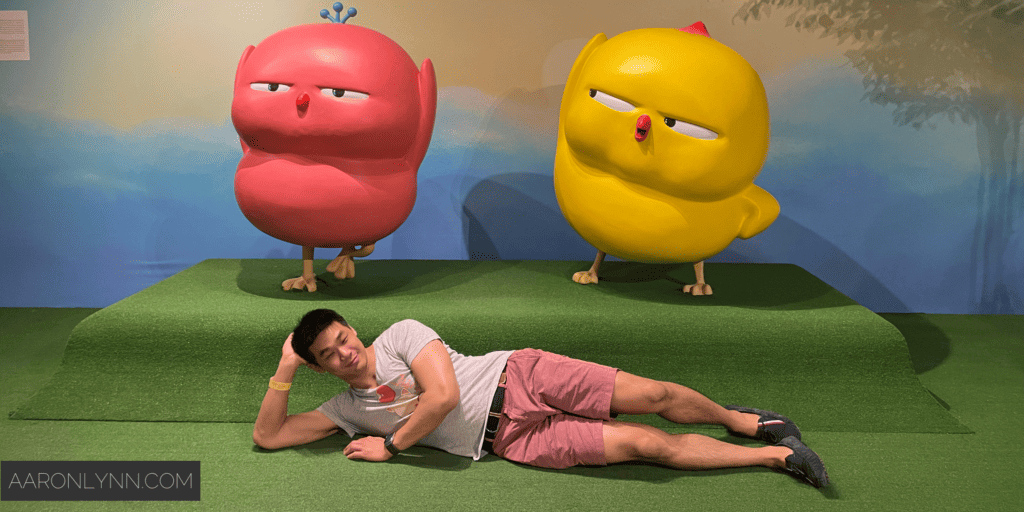
Social media is not all doom and gloom.
It would be easy to gloss over the benefits of social media and just say, “it has positive aspects”, but let’s dive deeper.
What is actually good about social media?
Rapid information dissemination
Whenever I want to know about something that is happening RIGHT NOW, I go to Twitter/X.
There I can find specific accounts or hashtags set up for alerts about fires, breaking news, severe weather and so on.
For the most part, these accounts remain objective and opinion is kept out of it — and that is invaluable.
Creativity and personal expression
The semi-anonymity of social media and the Internet lets human creativity run free.
Never in the history of the world have we produced as much amazing art, writing, and other creative endeavours as we have across social media.
Global connections between people
I remember when I received my invitation to join Facebook.
I was in college on exchange to the US at the time, and Facebook was only open to college students.
It was nothing short of incredible.
You could go out to a party (or class), meet new people, then add each other on Facebook.
And then spend hours browsing other people’s walls,4Now known as Timelines. to see what they were up to.
Compared to swapping phone numbers and texting people, this was revolutionary. Especially if you consider that back then, we texted on flip phones with only number keys.
Everyone on your Facebook was someone you had met in real life. This was the original concept of “people are more interested in knowing what’s going on in their neighbour’s backyard than halfway across the world”.
Now to a large extent, Facebook still does this.
Many people, myself included, keep in touch with close friends and friends from around the world across Facebook and Instagram, catching up with their stories and posts.
This is a purer form of social media, if you will.
And if you take one step out, you can see friends of friends, and make new friends online who you have never met in real life. This has never been my thing, but it seems to be the norm now.
So with this somewhat idyllic view of the origins of Facebook in mind, where did it all go wrong?
The answer is human nature.
Social media is simply a reflection and amplification of humanity as a whole.
What starts out as “a cool way to keep in touch with college friends” leads to ego, greed, envy, comparison, and keeping up with the Joneses.
But it’s not all bad.
Positive amplification
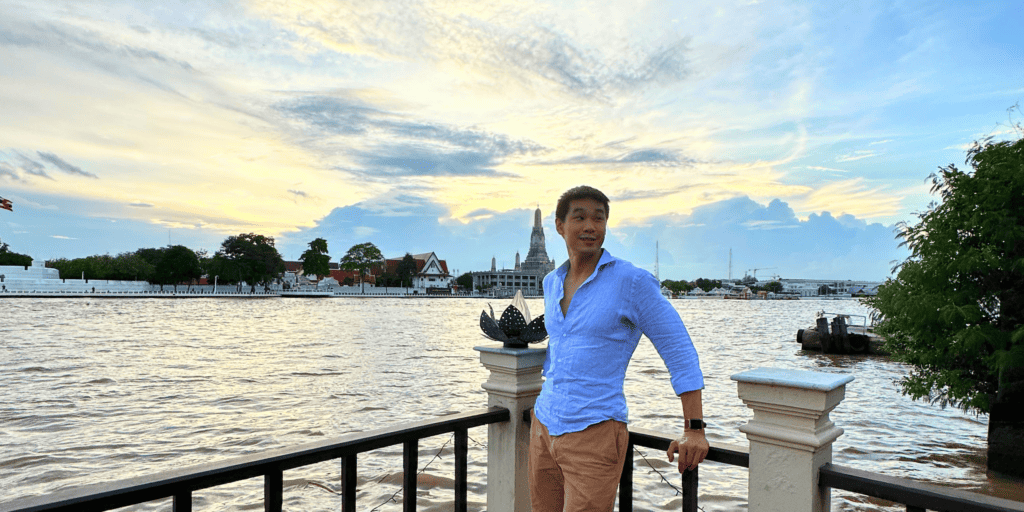
Just as social media amplifies the negative aspects of human behaviour, it also does the same with the positive.
That one, positive, upbeat person in the village who makes everyone’s day?
Thanks to social media, they can now reach thousands of people online. Social media gives them a voice that traditional media would not.
Which leads us to…
Communities
The technology behind social media makes it easier for people to find and form communities of likeminded others.
These could be anything from fitness communities, to cultural exchanges, to professional business communities.
There are basically an unlimited number of niche communities to join where you can connect with people who like what you like.
This is great for people who are introverted, geographically isolated or who have esoteric hobbies and interests.
That’s the upside.
The downside is echo chambers, and we’ll get to those shortly.
Business and money
Social media also gives you the opportunity to build your business, brand, and “following”.
For working professionals, it’s also an opportunity to build your career and the network. I have personally seen and helped people land jobs, contracts, and promotions through social media.
The combination of self-promotion, displays of value and connecting with others flat-out works.
But.
It can sometimes feel a bit… sleazy.
And there are plenty of fraudsters out there.
It is not uncommon to see claims on Twitter/X of, “I made my clients $138m last year”.
Given there is no real way to verify that claim… I call bullshit.
More likely, their clients together MAY have had a combined revenue of $130m last year, and they MAY have contributed to some of that, but they are not solely responsible for that entire amount.
The truth is, if someone made their clients that much money and were really that good at business, they would have been equitably compensated for it in the range of a few million dollars. In which case… why are they hustling so hard on Twitter/X?
A lot of business social media content is just a big pyramid scheme and echo chamber.
The current scheme making the rounds is, “Here’s my amazing system for making money”, which is to sell a course teaching others a system for making money.
The question for business people is how you walk the fine line between promoting yourself (because you need to) versus just distorting facts because that’s the only way to stand out.
Social activism
Social activism exists on social media.
I don’t participate in it, and I barely see it, to be frank.
And that’s part of the problem — thanks to the way that the algorithm works, unless I’m actively engaging in the content, I’m unlikely to see more of it in the future.
Social media is potentially a good way of promoting civic engagement, but it just isn’t that effective in its current form.
You may be asking — Aaron, if all this stuff about social media is so great, why is there so much doom and gloom on my feed?
Well, we’ve talked about Skinner Boxes already.
Now let’s look at echo chambers and filter bubbles.
Echo Chambers and Filter Bubbles
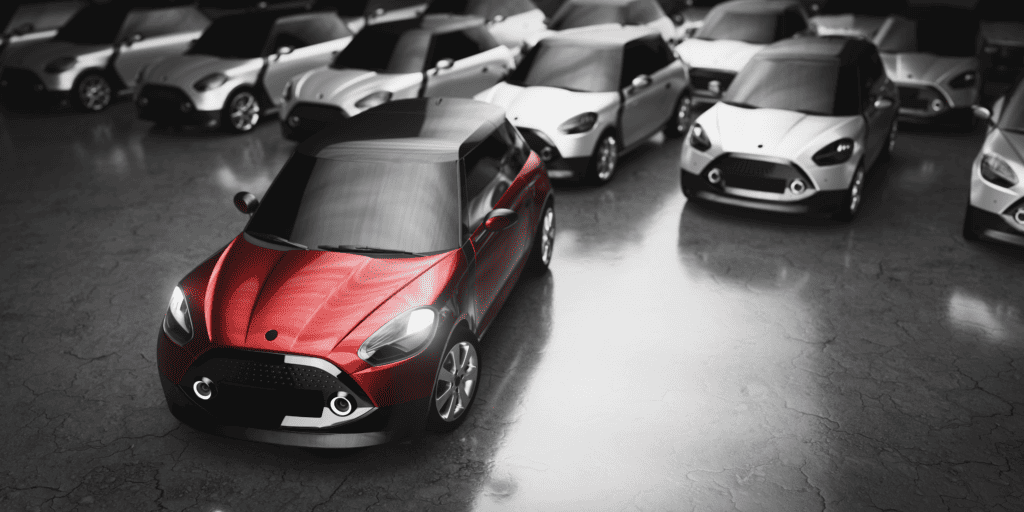
An echo chamber is from traditional news media where when you say something, others “echo” the same opinion back you.
Filter bubbles describe the intellectual self-isolation that occurs due to algorithms online.
The two concepts are similar.
The difference is that an echo chamber would be like following specific people or accounts with specific views.
A filter bubble would be being pushed to those specific accounts via algorithmic recommendations.
In reality, for social media, the two terms are used interchangeably and result in the same effects.
How do echo chambers and filter bubbles happen?
Social media algorithms are designed to serve us more of what we want and like.
And to achieve this, it relies on a complex set of behavioural signals to determine what we want and like.5How we interact with our apps and phones.
So when we like something on a feed, it finds us related content and gives us more of it. At the same time, it feeds us fewer things that are opposite or opposed to what we just liked.
Over time, this means that our feeds and searches end up returning a limited perspective and set of opinions and content.6For more, see the quasi-documentary, The Social Dilemma.
On its own, the echo chamber/filter bubble effect is not so bad.
But there are two problems.
The first is somewhat minor, which is that just as it’s possible to become 1% smarter every day, it is also possible to become 1% dumber every day, and echo chambers that limit our perspective eventually lead to that.
The second is more insidious.
And that is when echo chambers and filter bubbles lead to polarisation and extremism.
This happens because the human brain is an incredible adaptation machine.
We create “new norms” for ourselves based on our environment all the time so that we can survive and cope in otherwise difficult situations.
If we take this survival mechanism and combine it with the idea that our brains basically see the narrow channel of social media as “the world”/“reality”, then we have a problem.
We simply cannot process the perspective of eight billion people, so we take a slice of it via social media and extrapolate.
So, within a filter bubble, what we see are all these views that match our own.
And the algorithm continues to serve similar content to us because we have indicated that we like it.
But eventually, the algorithm runs out of content.
So it finds SIMILAR content to serve to us — and some content is slightly more extreme, or polarising.
But the algorithm is just doing its job well, and some of that more extreme content resonates with us, so we continue to like it.
And the algorithm reacts by finding EVEN MORE polarising/extreme content to serve us.
And so our behaviour of clicks, likes, and time spent on social media combines with the algorithm to race together towards extreme and polarising content.
A benign example would be if you like red cars.
You go on social media and like a red car post.
The feed starts to show you more red cars.
You like them all.
Then all of a sudden, because of the filter bubble, all you see on social media are red cars.
And your brain starts to think:
Hey, maybe there are ONLY red cars in the world because that’s all I’m seeing online.
Now this is fine.
But what happens when you start seeing posts that suggest all cars MUST be red. And that anyone with, say, a white car, is a TRAITOR to car owners?
That’s how we start with filter bubbles and end up with extremism.
The Glorification Effect
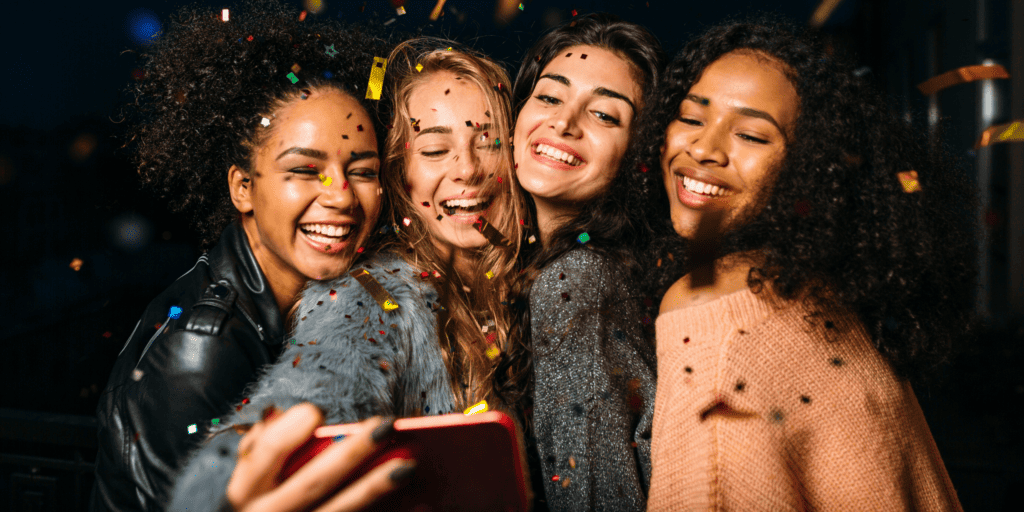
Social media started as an effort to capture everyone’s mundane, everyday lives.
But over the years it has transformed into a “picture perfect” representation of humanity and the accompanying lifestyles of the rich and famous.7Also known as the Instagram Lifestyle
This is the Glorification Effect.
In fact, it has transformed so much so that my partner Aki recently said to me,
“People nowadays set their life goals based on what they see on social media.”
That’s a profound thought, and quite unsettling.
It indicates that there are people out there who don’t understand what is real, what is a choreographed snapshot of someone’s “best life”, and what is an outright fabrication.
How has this happened?
It seems obvious that we all want to portray ourselves in the best possible light online, whether that’s out of ego, marketing, approval, branding or fame-seeking purposes.
We don’t post the ugly side of our lives unless we are doing so for vulnerability purposes and to garner a sympathetic response.
This is a problem because of two ideas:
- People like to follow charismatic leaders.
- People are susceptible to conflation and false equivalence.
Both of these lead to the same problem.
When we see someone doing well, that’s fine.
When we think that someone is awesome, that’s also fine.
But then we start thinking, “Hey, if I do what they do, maybe I can be like them”.
And we fail to recognise that what they do or have done is for THEIR situation, and WE are entirely different individuals.
And that’s assuming that their portrayal is real, and not just smoke and mirrors.
The issue lies in the human brain having trouble understanding this.
And that’s because we often falsely equivocate fame with authority and expertise, and we glorify it.
We think that because Kim Kardashian is fabulous and rich, that we should be taking financial advice from her.
We think that because someone is a doctor and appears in a lab-coat, we should take ALL health advice from them.
And that if someone is a crypto bro with 500k followers and standing in front of a Ferrari that their $5000 “home study course” is going to make us rich too.
Social proof is the most powerful aspect of influence,8See Cialdini, R. B. (2007). Influence: the psychology of persuasion. Harper Business. so it is no surprise that this works.
It is an inbuilt feature of human psychology to treat famous people differently — as experts, authorities, “influencers”.
This is not social media specific, but social media makes it more commonplace because we can see just how famous they are and what kind of lifestyle they supposedly live.
Even if deep down, we subconsciously know that we are only seeing the tailored highlights of someone’s life on their profile, we can’t help but think that their ENTIRE life is like that, and that we want to emulate or belong to some part of it.
We extrapolate their curated snapshots into their entire lifestyle.
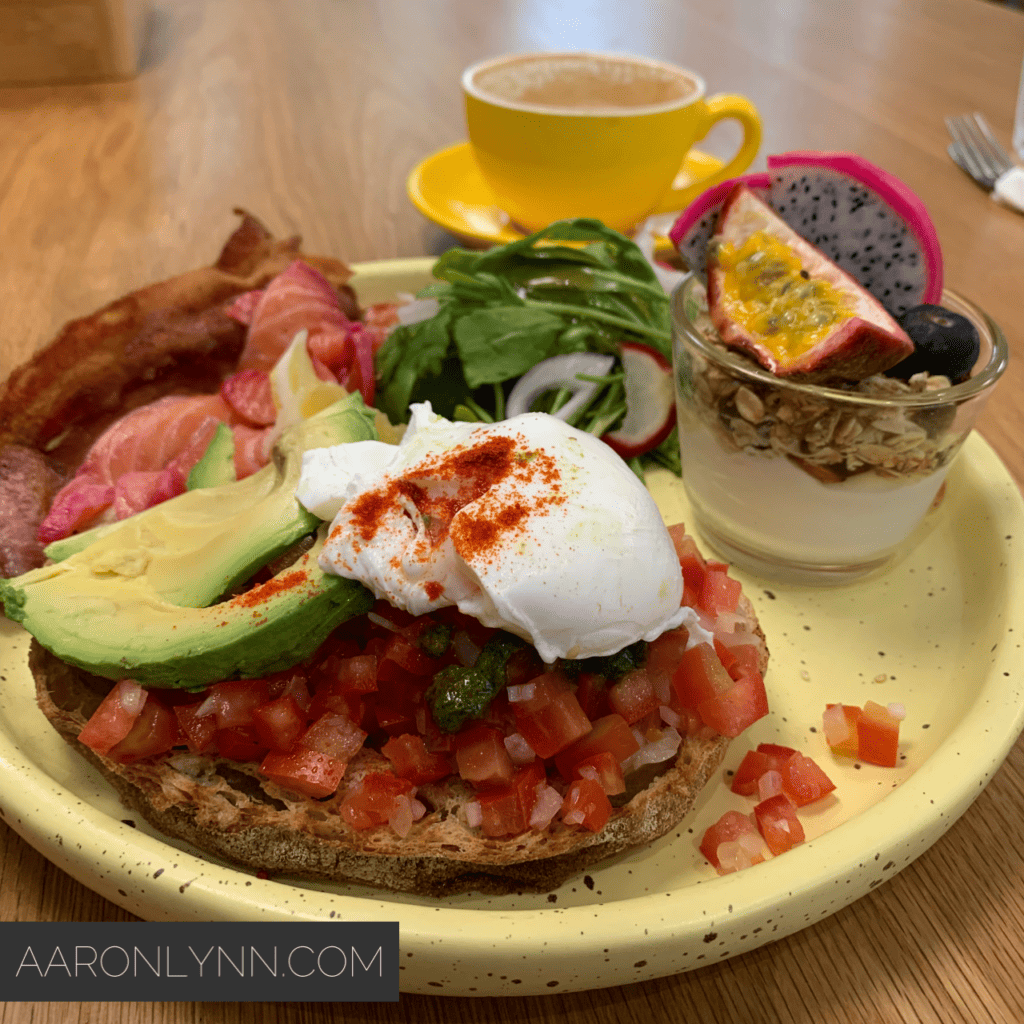
I recently had lunch with my friend Patrick. We were talking about displaying lifestyle on social media, and he commented, “Oh, we just take photos when we travel”.
Now for him and his wife, that is normal — they really do travel a lot to nice places and indeed live the Instagram Lifestyle.
They are financially successful and for them, what you see online is really just how they live their lives.
But that simply isn’t true for everyone. Not everyone has the financial means to live that lifestyle, and it would be more sane if we all recognised that.
Which brings us to a related issue, in that there is no good way to discern truth from fiction on social media.
Because… people do outright lie on social media.
They “fake it until they make it”.
It could be the convenience store checkout clerk here in Thailand, who shoots amazing profile photos with her budget camera phone.
It could be aspiring actors and actresses in LA buying followers, likes, and comments to turn themselves into influencers.9Bolton, N. (Director). (2021). Fake Famous [Film].
Or it could be more subtle — online marketers selling a course that teaches you how to sell courses to other people. This is little more than a modern-day take on pyramid schemes.
A cynical take would be that the entire social media influencer (“key opinion leader”) industry is designed to make others feel bad about themselves so that they will buy a promoted product to feel better.
In this instance, influencers are little besides infomercial hosts with only one talent — capturing attention, playing on emotions and turning attention into real money for themselves and their sponsors.
Most people lack the critical thinking skills to see whether something is good or bad for them. They assume that if thousands of others like something, rave about it, post photos about it and say it’s amazing… then it must be.
I recently had brunch with some friends at what is the “hottest” brunch place in Bangkok right now. Three people, a $120 bill and decidedly mediocre food. Yet if you go on Instagram and Google Maps, people RAVE about this place, and it’s reservation-only and swear it’s the best thing invented since sliced bread.
Why?
Because they do great social media marketing. They have celebrities and influencers come eat, take cool photos and post and tag them, and then everyone else comes.
And yet… the first-hand experience does not match up.
Personally, I would never go back.
But for most people, even when they have a lacklustre experience, they will backwards rationalise to themselves that they just don’t understand it, and it is in fact, still amazing. All simply because they do not trust their own first-hand experience, and don’t want to go against the opinions of others, especially the influencers that they look up to.10There is a whole other rabbit hole here in how going against the opinions of their favourite influencers would shake the foundations of their identity by making them question advice and decisions.
And what of those people online who don’t have the fame, the likes, the shares?
Does this mean that they know less? Are not experts? Are of “less value” than the people with large followings?
Of course not, it simply means that they are not as good as promoting themselves no social media.
The absence of evidence is not evidence of absence.
Anonymity, Dehumanisation, and Desensitisation
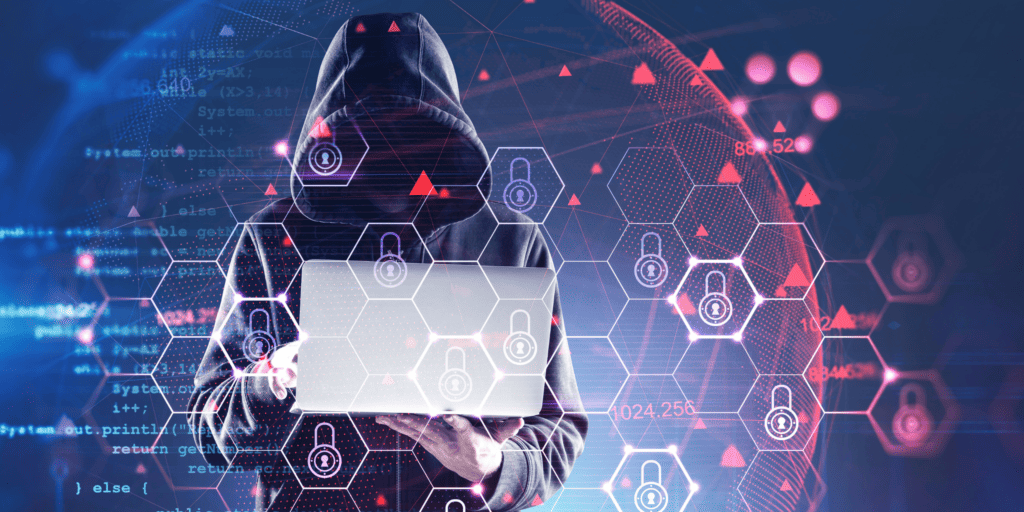
With online anonymity, comes dehumanisation, desensitisation and the ugly side of human nature on display.
We know this as online harassment, or cyberbullying.
This is because technology allows us to be anonymous and semi-anonymous, so we just don’t see the person on the other side of the screen as human.
We see them simply as words, ideas, abstract.
It is similar to some seasoned salespeople seeing others only as their top-of-funnel, but not as real humans with lives, emotions, hopes, and dreams.
This allows people to become more vicious, and results in less human decency.
But underneath this is a more complex issue.
You see, it is impossible to separate the negative aspects of social media from the technology itself. Because these aspects do not come from the technology. They come from the human behaviour, acted out by real people, on the technology.
Technology simply force multiplies what was already present in humanity.
It will amplify the best and worst aspects of human behaviour, much like money does.
The reality is that if we are seeing a lot of bad, dehumanising, and vicious behaviour online, that is because many people ARE like that deep down in real life, and social media technology is simply a channel for them to express it.
Unfortunately, there is no engineering solution to this dehumanisation on social media.
A solution would have to involve changing human behaviour and motivations on a global scale, making it essentially impossible.
In the face-to-face world, these bullies may not be able to act out their desires, but online, they can.
What is disturbing and problematic is that many do not realise that their actions have impacts on others’ real lives, which is tragic.
This is because thanks to echo chambers, filter bubbles and pseudo-anonymity, they have become desensitised to extreme content, vicious behaviour and well, cyberbullying online, and think it’s perfectly normal.
What can we do when we are the target of such behaviour?
Very simply, we can only not give a fuck about it.
Delusions of grandeur
Related to the dehumanisation of others online, are delusions of grandeur or the aptly named, Main Character Effect.
This is where people start to accumulate followers and end up thinking that the entire world revolves around them.
You see this in popular “prank” videos done in other people’s stores or even houses, or “fitness influencers” recording themselves at a public gym and becoming upset when others walk into their recording frame.
They expect everyone around them to change their lives to suit THEM.
The Main Character Effect happens because social media is designed to make it possible for YOU to be the star,11You could argue that it only allow you to role-play as a star, as most people will never actually become stars through social media fame. and for YOUR life to be broadcast to the masses.
Now we would think that humanity is self-aware enough to realise that this isn’t reality. But plenty of people lack self-awareness, or are just high-enough in ego or narcissistic traits that they don’t realise that it is all an illusion.
There are over 40 million people with over 1 million followers, and over 140 million people with over 100,000 followers — it really isn’t all that special anymore.
But when we combine this with a filter bubble, vanity and the fact that people want to be famous… we end up with entitled “creators” and “influencers” who see themselves as the main character in everything they do.
Ghosting and flaky behaviour: bad social media habits in real life
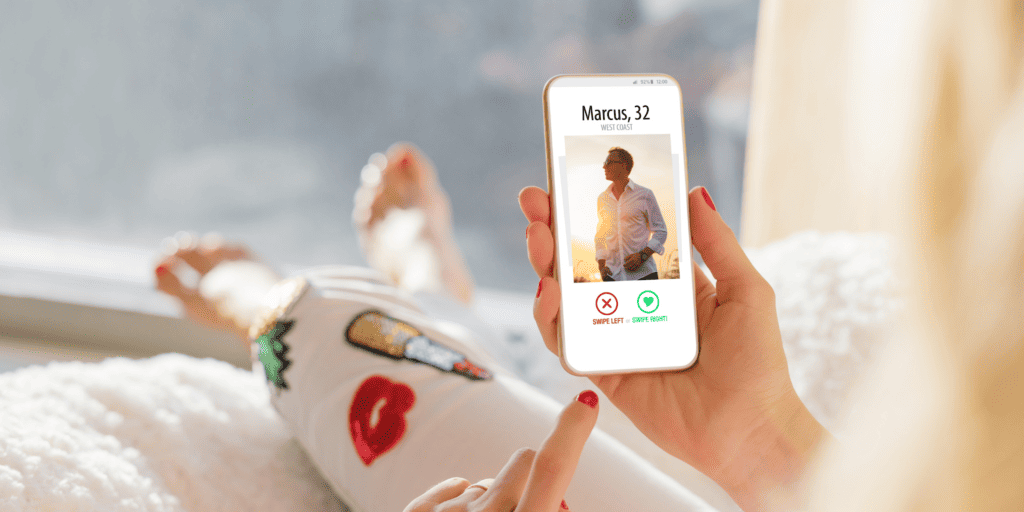
On social media (or dating apps) if we see something we don’t like, we either swipe past it or hit thumbs down.
Now for apps this is fine.
This is what teaches the algorithm to show us the kind of content and people that we like.
But as mentioned before, human brains are outdated hardware platforms that have a hard time recognising the difference between a phone app and reality.
Real life obviously doesn’t work this way — in person, you can’t just swipe away someone you don’t like.
And so we end up with social phenomena like ghosting and flaky behaviour.
Ghosting is where we simply up and vanish from someone’s life.
On the Internet, this makes sense. If we don’t like some random person, we simply swipe away, restrict or block them.
There used to be some kind of norms about not doing this in real life, especially in professional settings.
But most business owners who have hired recently have also experienced situations where job candidates book interviews and just decide not to show up — and to subsequently ignore any phone calls or messages to try to find out whether they are coming to interview or not.
True story:
One of my clients had his accountant up and disappear one day with zero notice. They simply stopped replying to messages, blocked his number and vanished. After a month of trying to track them down (and pay them their last month of salary) all he heard back was “I couldn’t handle it anymore”.
Professional ghosting really shouldn’t be acceptable in a civil society, but somehow it has become acceptable.
Flakiness and flaky behaviour is where people remain communicative, but cancel plans at the last minute.
If we think back to pre-mobile phone, if we were late or unable to make it to something, we would have to call in advance and cancel.

Another true story:
Dan Fraser,12Also a former client. has a great tale from his travelling days, where he made plans with a friend to meet on the steps of the Sydney Opera House at 9:30am on a specific Saturday in August 1997. They were both flying in from different countries and had worked this out months before over postal mail.
Nowadays, we can send a message a minute before and say, “Sorry, won’t make it”… despite others making preparations for us to be there.
I believe that it is a combination of the Fear of Missing Out (FOMO), the general dehumanisation of others across social media, and the Main Character Effect that have combined to simply make people more flaky.
There appears to be little or no consideration for others’ plans or efforts. In their minds, flaky people make plans “until something better comes along”.
Everything is flexible and optional until the most attractive option becomes apparent 5 minutes before, then everything else is cancelled without consideration and perhaps even without notice.
You are simply “one of many options” or even “the not attractive option but better than nothing” to them until that happens.
This is because social media has conditioned people to want only the brightest, shiniest experience. They will refuse to fully commit to attending or doing anything in the hopes that they can get that.
It also manifests as, “Hey bro, super busy right now. Msg me the morning of and I’ll see if I’m free that day”.
Mental Health Issues
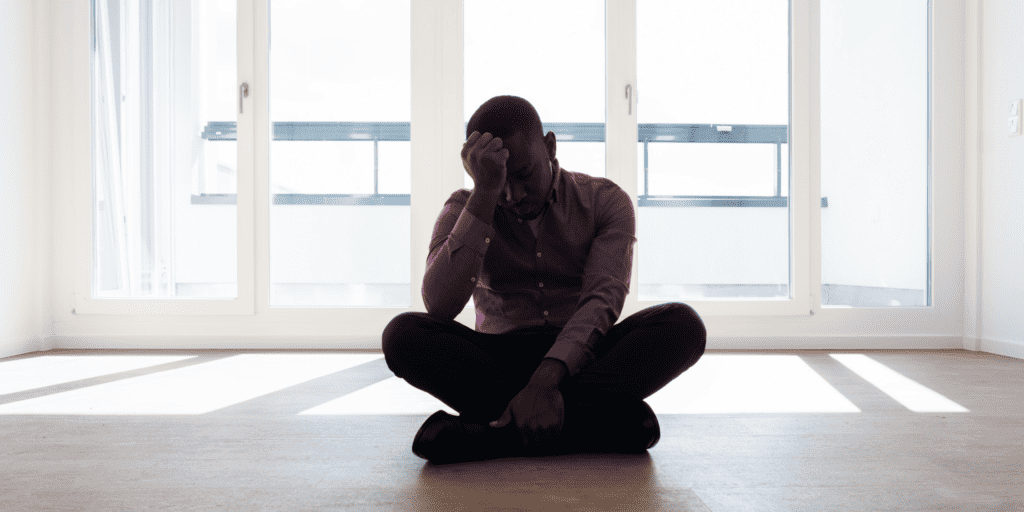
Human brains are just not built for social media.
There is too much stimulation and there are too many dopamine triggers.
In fact, human brains are used to the idea of life being boring, mundane, and routine.
What this means is that social media (and modern life) simply overload our brains in a variety of ways, and we end up with “mental health issues”.
It is valid to ask if it is social media specifically or smartphones that have created these issues.
Social media existed before smartphones — Facebook and MySpace used to be websites. They were small and localised, and there were enough barriers in place that our brains could handle the connections and information.
Smartphones without social media also exist today, and pretty much function the same as dumb phones except with Internet connections. Our brains can handle these.
But when we take these platforms and put them on Internet-connected smartphones — that is the killer combination that results in mental health issues.
All the negative impacts of social media that we’ve discussed thus far — Skinner boxes, filter bubbles, the glorification effect and dehumanisation — all contribute to the current spate of mental health issues as a society.
One result of this is simply reduced productivity.
At a very base level, when you use social media, you’re taking time away from other pursuits.
And if your actions on social media are not beneficial to you, this is even more pronounced.
Are we better off with these tools and access than not?
I believe that yes, we are, and would not give up my smartphone and social media apps for the benefits that I derive from them.
But I do ask if there’s a middle ground where we can reap the benefits of social media and minimise the downsides.
Another result of these negative effects is our shortened attention span.
A Microsoft Research study done in 2015 puts our current attention spans at 8 seconds.13(n.d.). Attention Spans. Microsoft Canada. https://dl.motamem.org/microsoft-attention-spans-research-report.pdf
A more recent analysis of Twitter/X tells us that our collective attention to hashtags is dropping year-on-year.14Lorenz-Spreen, P., Mønsted, B. M., Hövel, P., & Lehmann, S. (2019). Accelerating dynamics of collective attention. Nature Communications, 10(1), 1–9. https://doi.org/10.1038/s41467-019-09311-w
Whether these studies are accurate and scientifically sound is a matter of debate.
But let’s think about this rationally.
We use apps like TikTok to feed us 20-second videos.
We endlessly scroll on Facebook and Instagram.
It takes something really shocking or interesting to make us stop.
Most of us can subconsciously assess whether something is worth stopping for or not in less than a second.
So we are training ourselves to parse information quickly, and to not pay attention something unless it shocks us or stops us.
In fact, content creators and influencers understand this and try to hook someone in the first few seconds of their videos.
To me, it makes sense that we are going to pay a lot less attention to any individual thing than we used to, and at the same time, there are also MANY MORE things to go through.
In times past we may have “powered through” a book or film that’s slow to start, but today we are painfully aware of just how much there is to consume, so we say “screw it” and move on.
Thus, we have both a reduced attention span and a reduced attention issue.
And what of FOMO?
People find themselves chasing the brightest, shiniest object that they can find out of fear or addiction to dopamine rewards.
This is the Fear of Missing Out (FOMO) and this is why it’s a problem:
FOMO leads to your attention being pulled in a thousand different directions, always holding out for the “best thing”, and resulting in nothing more than inaction.
It may be a good idea to be motivated by or aspire to live the Instagram Lifestyle, but the hard reality is that not everyone’s life will be like that.
I would even go as far to say that not everyone’s life is MEANT to be like that.15For a sobering look at what particular lifestyles actually cost, check out the Wall Street Journal’s excellent series on retirement in America.
If you can recognise that, then social media is manageable.
But plenty of people simply can’t, and they think their life is a huge disappointment compared to the idealised snapshots they see of others online.
And this is what creates our mental health issues today — more anxiety, more depression, more low self-esteem.
Business Implications
Social media has changed the way that business is done, both for B2B and B2C companies.
It has put focus on the attention economy and the idea of monetising attention.
Because let’s face it — our attention spans are becoming shorter, and user (and thus customer) attention is becoming more valuable.
Smart business people are also manipulating fame and followings to play on the false equivalence that fame = authority = expertise, and this has led to an entire industry of influencers and key opinion leaders (KOLs) promoting their products.
In times past, companies had to produce something of emotional or utilitarian value.
But today, nothing of value really needs to be produced — consumers will purchase simply based on the market perception of popularity, authority, and desirability.
This means that businesses can create a receptive market and distribution channel before a product is even ideated.
But it is a crowded marketplace.
We have seen the rise of clickbait headlines and video thumbnails, used shamelessly by content creators and traditional media outlets alike, in the effort to capture more consumer attention.
We have also seen the rise of influencers and KOLs.
They are a testament to the power of social proof, and that most people would rather trust the recommendations of others, even if they do not personally know that person, over their own thoughts and experiences.
Despite the somewhat negative connotations of these developments, businesses need social media.
Done properly, it has become a new channel for attracting eyeballs, traffic and thus potential customers to businesses.
Broader Social Implications
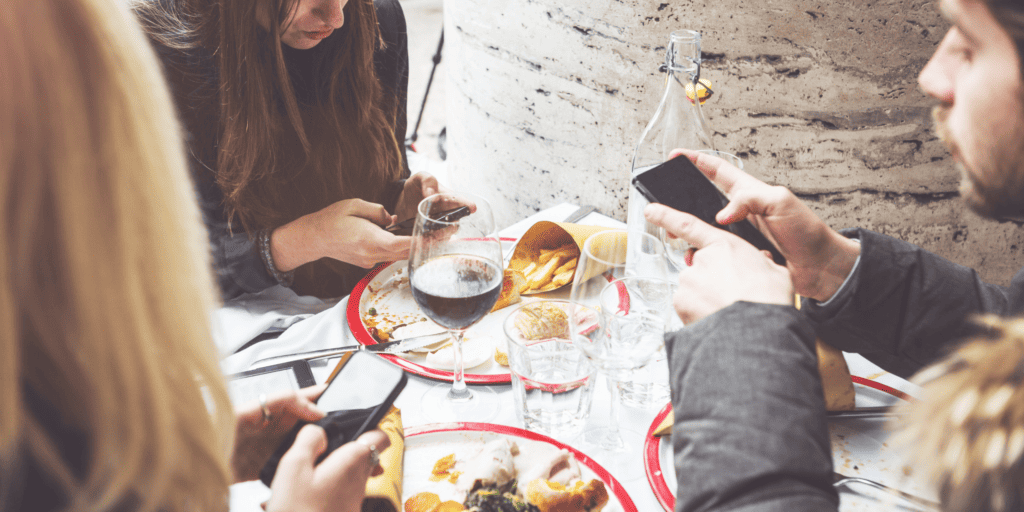
Louder voices
Louder voices are more visible on social media.
The more extreme, shocking or attention-grabbing something is, the more attention it receives.
We’ve already discussed the issues related to polarisation and extremism created by filter bubbles.
But the more subtle effect of louder voices is that their visibility makes it seem that certain issues are more important to human society than they actually are.
The reality is that they are not THAT important, it just seems that way because your filter bubble amplifies those voices and opinions in the content that you consume.
Shaping public perception
I recently subscribed to the Wall Street Journal.
And after many, many, years of not reading mainstream news… I was shocked.
Almost every single day, there is a news article about how the US is gearing up for war and competition with China.
As a non-American and not living in the US, this blows my mind.
The rest of the world is simply trying to live day-to-day and get on with their lives.
So why is a mainstream and reasonably centre news outlet, and I imagine their related content on social media, pushing for open conflict?
No one benefits from war.16Except defence contractors.
On a related note, American political discourse on social media is simply nuts.
Almost all non-American native English speakers look at what shows up on social media about American politics and think it’s insane.
And the more insidious part of it is that other English-speaking countries have started to unnecessarily import American norms, political views and extremism into their societies simply because the English language is such an effective conduit for ideas.
This is how we end with Trump supporters marching in the streets of Sydney and crazy people talking about an Australian Bill of Rights.17We have no Bill of Rights in Australia, but we have similar rights through statutes, the constitution and common law.
The fact is that social media is extremely effective in shaping public opinion when used properly — all it takes is some marketing skill and a large ad budget.18Cambridge Analytica anyone?
Fake news and disinformation
Opinion does not equal fact.
Yet many people on social media seem to think that their opinions ARE fact.
This comes from a lack of critical thinking and an inability to identify conflation and false correlations.
Some people never develop critical thinking skills through education or life, and many don’t seem to have any interest in doing so.
The “journalism” we see on social media is not really objective reporting — it is opinion.
If we understand this, then it is fine.
But when we don’t, we are making ourselves 1% dumber every single day and heading towards an idiocracy.
How can we deal with this?
We remember that everything is a business.
Sure, during world-changing events our news channels, social media influencers and more give us reporting that, we hope, is real, un-opinionated and informative.
But every other day of the year they are a business and will pander to a certain perspective to make a profit. Having opinions is simply how they stay in business.
Privacy
Privacy deserves its own essay, which you can find here.
The short version, is that we will give up our privacy for the ability to view and share cat videos 🐈⬛.
Why Do We Love Social Media So Much?
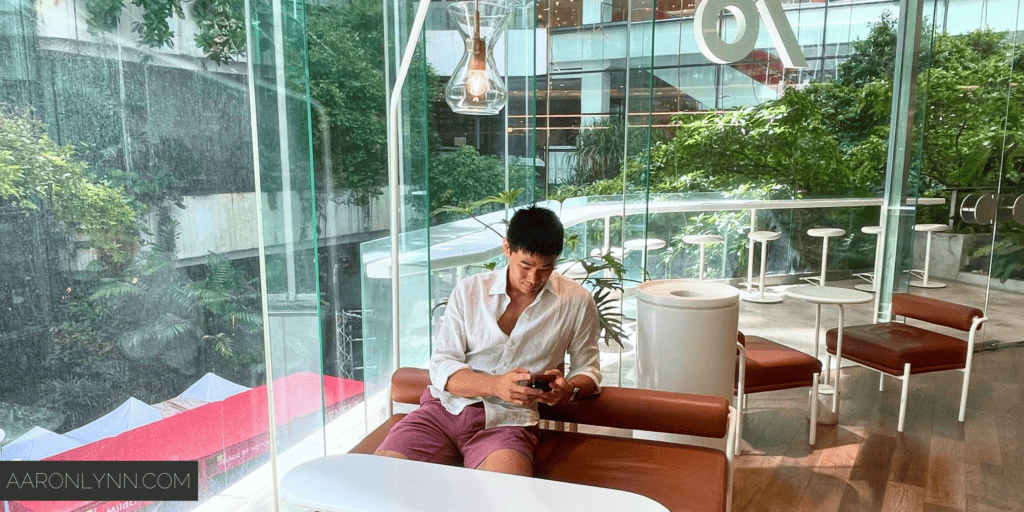
So Aaron, if we know that social media is bad for us, why are all so happy to keep using it?
Or perhaps, why are compelled to keep using it?
I believe it is because during our tribal days, we had to socialise to survive, and that this is a hardwired human instinct, even for introverts.
Social media is the technological bastardisation of that instinct, without guardrails.
People often say that they use social media for fun — but was it ever really fun?
I am not convinced.
We all like social comparison and to socialise generally.
And despite our best efforts, we do care what others think of us.
We love competition and want to see how we stack up.
We love to win over others.
We also love schadenfreude — to see others, who we dislike or envy, lose.
And as our discussion of Skinner boxes has shown, social media can become incredibly addictive.
The Glorification Effect also means that we seek to be famous on social media because fame leads to authority, expertise and eventually money. These are all strong incentives to seek fame and to continue using social media.
If we dig deep, we could say that this all points towards the primal need to be desired by others.
And even deeper, this is a primal need borne of insecurity and the need for validation and attention.19Otherwise, what is the point of acquiring two million followers who like your risqué beachwear photos?
In short, we are addicted to social media at a neurochemical level.
We are behaviourally conditioned to crave more of it.
It taps into our primal needs of socialisation, being desired by others, and receiving attention and validation.
This is why we love social media so much.
What Can I Do About It?
This is the social media square.
We have to weigh the benefits against the downsides of engagement and usage.
It is not a gradient scale, but a two-axis visual plot, and where we fall on the plot tells us where we stand.
Are we a monetised influencer, just an influencer, a user (aka “the product”), an addict, or simply disengaged?
I believe we all need to come up with standards for ourselves for how we use social media.
Write your own guidelines, and don’t be afraid to experiment.
What Aaron did
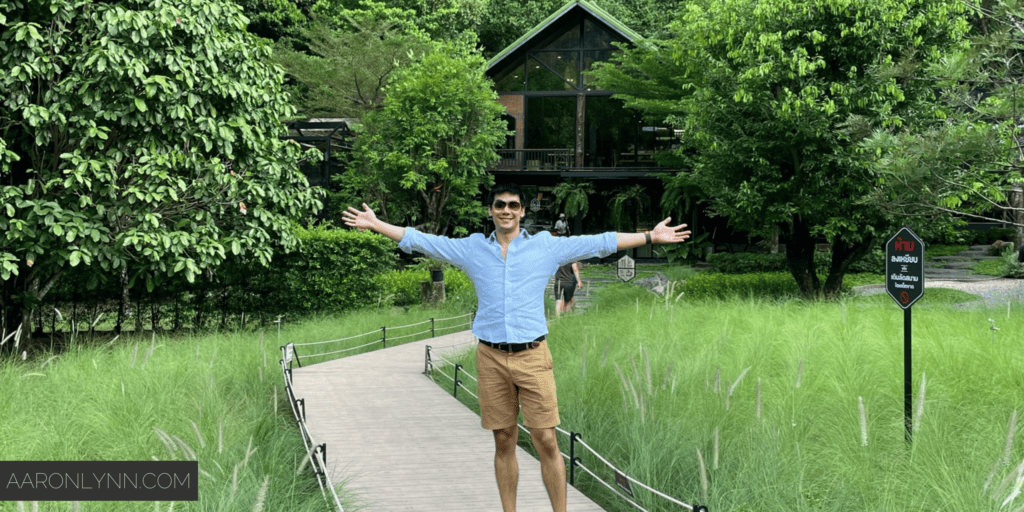
Here’s what I did.
I started on social media completely disengaged — I disliked the game and did not want to play it at all.
But as times change, so do opinions and realities.
And so, with more and more of my friends active on social media, I joined.
And I told myself, “Hey, if I’m going to do this, I may as well be good at it and use it for my benefit.”
Here are some of my guidelines:
- No doom-scrolling.
- No general “spare time” scrolling.
- Don’t do it for the dopamine hits.
- Try not to make “Open XYZ social media app” as the default behaviour when I pick up my phone.
- Don’t take the phone into the toilet.
- All the same guidelines for minimising distractions when working — phone in a different room, do not disturb mode.
- When using social media for work, do it with a purpose — posts, comments, likes.
- Use social media personally, but don’t seek fame. Keep in touch with friends, share my adventures, and tell stories.
You can use these as a start, but you should also create your own.
Some things I could be better at:
- Engaging with others.
- Promoting my brand more — learning, systemising, leveraging and applying.
- Understanding how attention is hijacked, kept and utilised.
What To Do Next
Social media is a bit of an all-or-nothing part of our lives.
Either we opt out, or learn to play the game.
If you enjoyed this essay, you’ll also enjoy Evolution.
It’s my short and completely free guide for taking your life to the next level. You can download it here:
- Hat tip: Aki Yamaguchi.
- Also, insane.
- We produce 328.77 million terabytes per day. https://www.statista.com/statistics/871513/worldwide-data-created/
- Now known as Timelines.
- How we interact with our apps and phones.
- For more, see the quasi-documentary, The Social Dilemma.
- Also known as the Instagram Lifestyle.
- See Cialdini, R. B. (2007). Influence: the psychology of persuasion. Harper Business.
- Bolton, N. (Director). (2021). Fake Famous [Film].
- There is a whole other rabbit hole here in how going against the opinions of their favourite influencers would shake the foundations of their identity by making them question advice and decisions.
- You could argue that it only allow you to role-play as a star, as most people will never actually become stars through social media fame.
- Also a former client.
- (n.d.). Attention Spans. Microsoft Canada. https://dl.motamem.org/microsoft-attention-spans-research-report.pdf
- Lorenz-Spreen, P., Mønsted, B. M., Hövel, P., & Lehmann, S. (2019). Accelerating dynamics of collective attention. Nature Communications, 10(1), 1–9. https://doi.org/10.1038/s41467-019-09311-w
- For a sobering look at what particular lifestyles actually cost, check out the Wall Street Journal’s excellent series on retirement in America.
- Except defence contractors.
- We have no Bill of Rights in Australia, but we have similar rights through statutes, the constitution and common law.
- Cambridge Analytica anyone?
- Otherwise, what is the point of acquiring two million followers who like your risqué beachwear photos?
